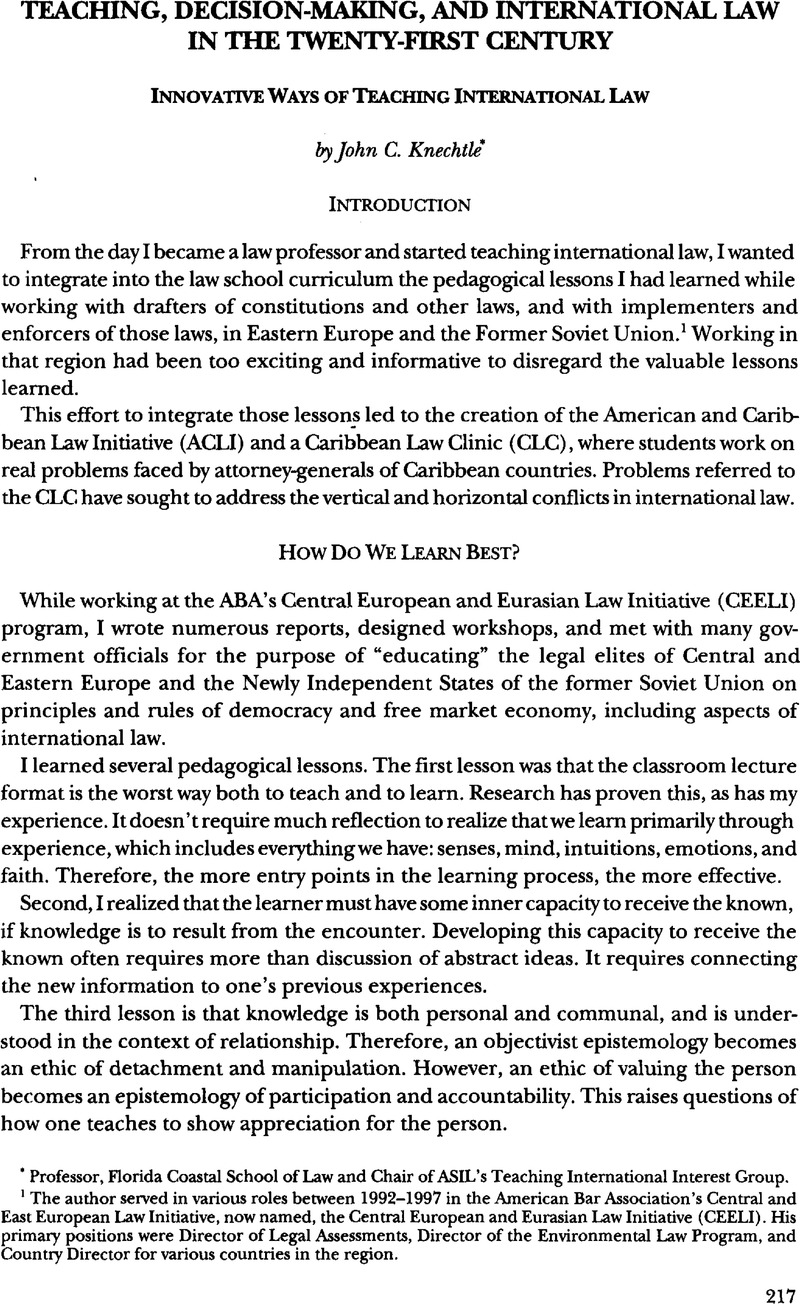No CrossRef data available.
Article contents
Innovative Ways of Teaching International Law
Published online by Cambridge University Press: 28 February 2017
Abstract

- Type
- Twenty—First Century to Twenty-First Century
- Information
- Copyright
- Copyright © American Society of International Law 2003
References
1 The author served in various roles between 1992-1997 in die American Bar Association’s Central and East European Law Initiative, now named, the Central European and Eurasian Law Initiative (CEELI). His primary positions were Director of Legal Assessments, Director of the Environmental Law Program, and Country Director for various countries in the region.
2 The four law schools were: Norman Manley Law School (NMLS) of Kingston, Jamaica; Nova Southeastern University Shepard Broad Law Center (NSU) of Fort Lauderdale, Fl; Thurgood Marshall School of Law of Texas Southern University (TSU) in Houston, Texas; and Florida Coastal School of Law (FCSL) in Jacksonville, Fl. There was an initial agreement between NMLS and FCSL but that was expanded to these four institutions. In 2002 the Eugene Dupuch Law School in Nassau, Bahamas joined, followed by the Hugh Wooding Law School in Trinidad and Tobago.
3 CARICOM was established by the Treaty of Chaguaramas which went into effect on August 1, 1973. CARICOM has focused on integrating the economies of member states, creating free trade agreements, and cooperating on criminal law enforcement, disaster relief, external trade and foreign policy, air and maritime policy, telecommunications policy, and a Charter of Civil Society. Member states include Antigua and Barbuda, Bahamas, Barbados, Belize, Dominica, Grenada, Guyana, Haiti, Jamaica, Montserrat, St. Kitts and Nevis, Saint Lucia, St. Vincent and the Grenadines, Suriname, and Trinidad and Tobago. Associate members include Anguilla, Bermuda, British Virgin Islands, Cayman Islands, and Turks and Caicos. Caricom observers include Aruba, Columbia, Dominican Republic, Mexico, Netherland Antilles, Puerto Rico, and Venezuela.


